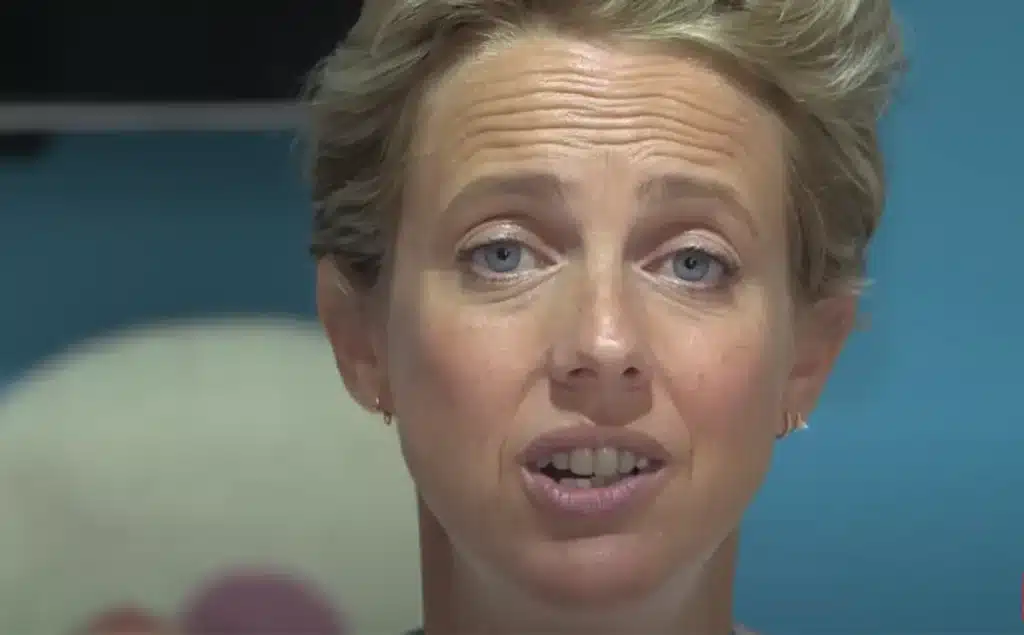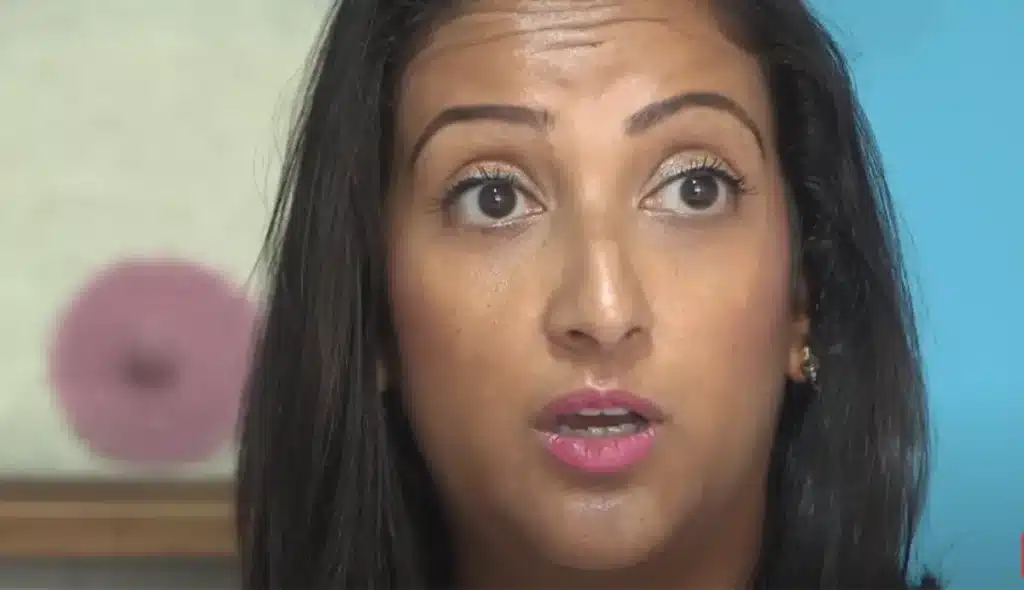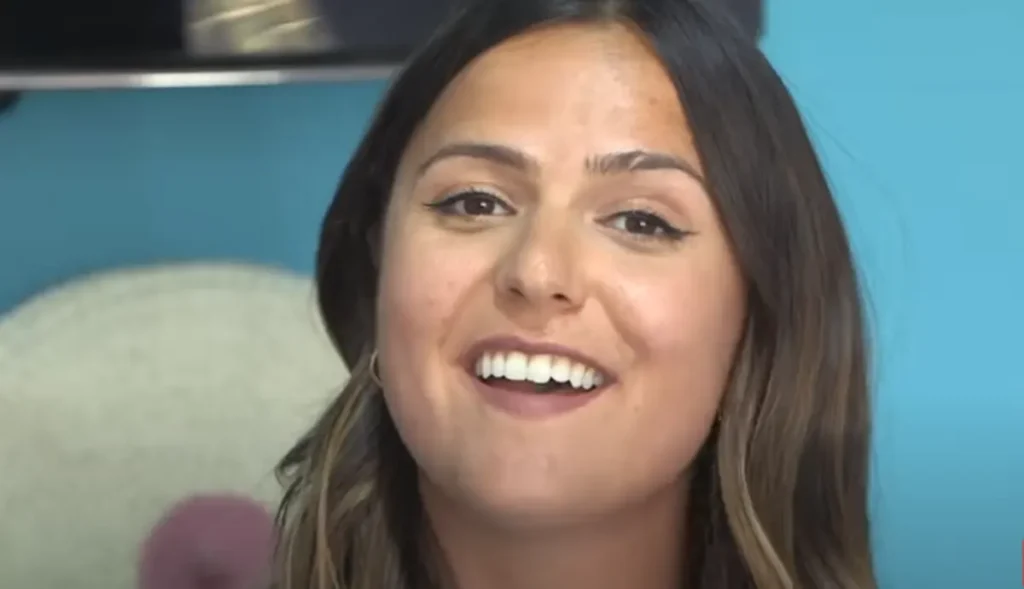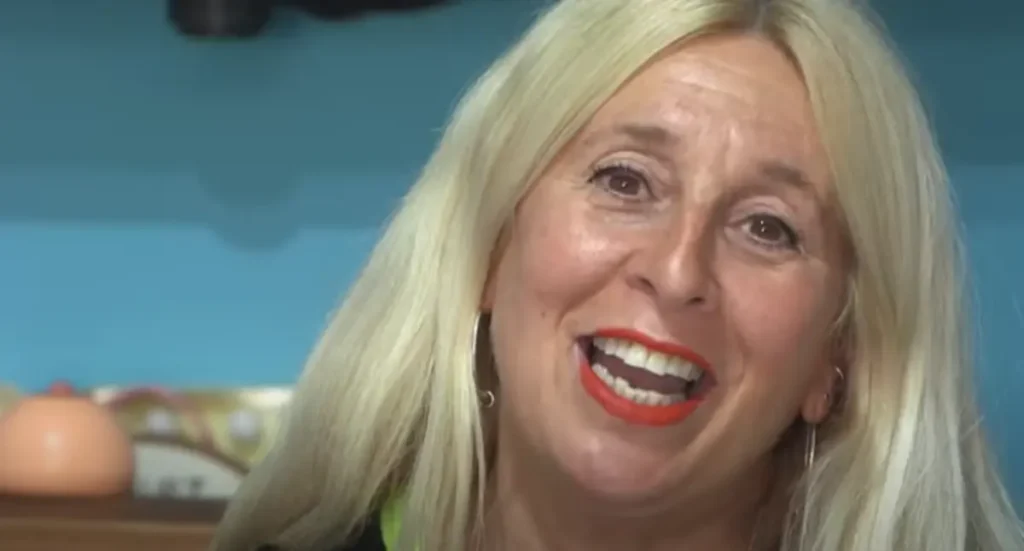Four Inspiring Stories of Diagnosis of Breast Cancer
Cancer is a word that strikes fear into the hearts of many, and rightly so. It’s a relentless and Ruthless disease that can affect anyone, regardless of age, gender, or family history. In this article, we bring you four remarkable stories of women who faced the daunting diagnosis of breast cancer with unwavering strength, resilience, and a fierce determination to conquer the odds. Their stories serve as a testament to the power of the human spirit and the importance of early detection and support.
Helen Addis: A Year of Diagnosis of Breast Cancer

Helen Addis, the Features Editor on Lorraine, breast cancer survivor, and the creative mind behind the groundbreaking ‘Check and Change’ campaign, has not only captured the attention of celebrities but also garnered recognition in Parliament. In this article, we delve into Helen’s remarkable story, hoping to inspire others to be more aware of their health.
A Life-Altering Discovery
At the age of 39, Helen’s life took an unexpected turn. As she prepared for work one morning, she made a life-altering discovery – a lump just under her right nipple. It was round, firm, and about the size of a chickpea. Initially, she didn’t panic, attributing it to hormonal changes. With no family history of cancer and a healthy lifestyle, she felt reasonably confident that it wasn’t cancer.
The Path to Diagnosis of Breast Cancer
To be cautious, Helen consulted her GP, who referred her to a specialist. Within two weeks, four more lumps had appeared. Strangely, this provided a false sense of comfort, as Helen couldn’t fathom that cancer could progress so rapidly. Balancing her role as a mother of three young children, a full-time TV producer, and a caregiver to her mother with dementia, she felt overwhelmed. At her appointment, she underwent a mammogram, ultrasound, and biopsy.
The Devastating News
Just four days later, she received the dreaded news from her consultant – “I’m sorry, it’s breast cancer.” The following week, Helen underwent a single mastectomy followed by lymph node surgery. Her journey through cancer treatment was grueling, including 16 rounds of chemotherapy, 15 rounds of radiotherapy, and 17 rounds of targeted immunotherapy.
A Pioneering Initiative
Throughout her 18 months of treatment, Helen engaged in candid conversations with her closest friends and family about their breast health practices. To her dismay, most of them confessed that they didn’t routinely check their breasts for abnormalities. This revelation struck a chord with Helen, making her realize that if it could happen to her, it could happen to anyone. This realization ignited the spark for the ‘Change and Check’ campaign.
Changing Lives, One Sticker at a Time
The ‘Change and Check’ campaign is remarkably simple – a sticker placed on changing room mirrors in shops and gyms, serving as a gentle reminder for people to examine themselves for potential signs of breast cancer. Supported by well-known retailers like John Lewis, Monsoon, David Lloyd, Ted Baker, Oasis, M&Co, Pour Moi, and Monsoon, the campaign has even found its way into the halls of Parliament.
A Worthwhile Journey
In 2019, Helen completed her treatment, marking the end of the most challenging period of her life. However, the true reward came from the ‘Change and Check’ campaign. Helen received messages from 52 women who credited the campaign for helping them detect their breast cancer in its early stages. This heartening feedback made her journey feel immensely worthwhile.
A Testament to Resilience
Helen Addis’s story is one of resilience, determination, and the power of turning adversity into an opportunity to make a positive impact. Her ‘Check and Change’ campaign stands as a testament to her indomitable spirit and unwavering commitment to improving the lives of countless women. Helen’s journey is an inspiration to us all, reminding us that even in the face of life’s most formidable challenges, we can find the strength to make a difference.
Hannah’s Story: A Battle That Never Ended
Hannah, a 33-year-old woman, shares a poignant and relatable account of her breast cancer journey. Her story is marked by the initial disbelief that cancer could affect someone her age, as well as her journey from finding a lump to eventual Diagnosis of breast cancer
Discovery of the Lump:
Hannah’s journey begins with her discovery of a lump in her breast while taking a bath. At first, she, like many young women, attributed the lump to minor issues such as tight clothing or a bra-related concern. This initial dismissal of the lump as a non-issue is a common reaction, particularly among those without a family history of cancer.
Seeking Medical Advice:
As the lump did not disappear after a few weeks, Hannah decided to seek medical advice. She visited her general practitioner (GP), who, like many women in her age group, dismissed it as a blocked milk duct, attributing it to her age and lack of experience as a mother. This experience highlights the importance of seeking a second opinion when one feels that something is amiss, especially when dealing with health concerns as serious as breast cancer.
Self-Advocacy:
Hannah’s determination and intuition played a crucial role in her journey. Even though her GP initially reassured her, Hannah was persistent and believed something was wrong. She knew she needed to advocate for herself. This aspect of her story underscores the importance of self-advocacy in healthcare and the need to trust one’s instincts, even when medical professionals offer reassurance.
Diagnosis of Breast Cancer
Hannah’s journey took a significant turn when she decided to push for further examination. Her insistence led to a mammogram, a biopsy, and an ultrasound, which ultimately led to her Diagnosis of breast cancer of grade three invasive breast cancer. Her story serves as a reminder that early detection and persistence are key in the fight against cancer.
Emotional Impact:
Hannah’s account also highlights the emotional struggles that come with a Diagnosis of breast cancer The shock, fear, and uncertainty that accompany the news are palpable in her story. She, like many cancer patients, had to come to terms with a reality she never expected at her age.
Telling Loved Ones:
One of the most challenging aspects of her journey was breaking the news to her loved ones. Hannah’s story touches on the difficulty of sharing such life-altering news with family and friends, as they struggle to comprehend the situation and provide support.
Coping Mechanisms:
Hannah’s story also reflects the resilience of the human spirit. Despite the challenges, she faced her diagnosis head-on, sought treatment, and navigated the complexities of living with cancer. Her journey is a testament to the strength and determination that can be summoned when faced with adversity.
By sharing her story on website, Hannah hopes to inspire others to be proactive about their health and to emphasize the importance of self-advocacy, especially when it comes to breast health. Her experience serves as a reminder that cancer can affect individuals of any age, and early detection is crucial in improving outcomes.
Caroline’s Story: A Double Battle with Diagnosis of breast cancer
Caroline, at 39 years old, found herself confronting a life-altering Diagnosis of breast cancer Her story is a powerful testament to the emotional turmoil that a cancer diagnosis can bring, especially when it strikes someone at a relatively young age.
Initial Denial and Shock:
When Caroline received her Diagnosis of breast cancer at the age of 26, she was initially in a state of disbelief. Cancer was not something she had ever anticipated facing in her vibrant and youthful life. Her initial reaction was one of shock, unable to come to terms with the idea that cancer had found its way into her body. This experience serves as a stark reminder that cancer doesn’t discriminate based on age, and its Diagnosis of breast cancer can be particularly devastating for young individuals like Caroline.
Planning Her Own Funeral:
In the immediate aftermath of her Diagnosis of breast cancer, Caroline’s thoughts took a dark turn as she grappled with her mortality. She admitted to planning her own funeral, a natural but distressing response to the overwhelming fear that accompanies a cancer diagnosis. This reflects the psychological trauma that many cancer patients experience, and Caroline’s honesty about her emotional struggles is a vital part of her story.
The Emotional Impact on Loved Ones:
Caroline’s story also sheds light on the ripple effect of a Diagnosis of breast cancer on loved ones. She describes the difficulties of breaking the news to family and friends and the emotional toll it took on them. Her mother’s reaction, while strong in her presence, was a poignant reminder of how deeply the news affected those who cared about Caroline. The emotional challenges and struggles faced by loved ones are an integral part of the cancer journey.
The Role of Support and Communication:
Through her experience, Caroline underlines the importance of support from loved ones and open communication during such trying times. Her realization that her husband couldn’t “fix” her cancer and could only watch her endure the battle is a poignant insight into the unique challenges faced by partners and caregivers. It highlights the need for open dialogue and a strong support system to navigate the complexities of cancer treatment.
The “New Normal”
Caroline’s journey also touches on the concept of a “new normal.” This is a common experience for cancer survivors, as they grapple with changes to their bodies, lives, and priorities during and after treatment. She initially resisted the idea of a new normal, expressing a desire to return to her old life. However, as she continued her journey, she came to accept that cancer had left an indelible mark, and a new normal was necessary.
Overall, Caroline’s story is a testament to the profound emotional challenges that accompany a cancer diagnosis, especially for young individuals. It highlights the importance of open communication, support from loved ones, and the need to acknowledge and work through complex emotions. Her candidness about her journey serves as an inspiration for others facing similar battles, reminding them that they are not alone in their struggles.
Claire’s Story: A Mother’s Love and Support

Claire, a 40-year-old woman, shares her personal experience with breast cancer “FOUR WOMEN, FOUR STORIES, ONE CANCER.” Her story serves as a powerful testament to the unpredictability and the profound impact of this disease on her life.
Initial Discovery:
Claire’s journey begins with a startling discovery. Just a year after undergoing breast augmentation surgery, she found a lump in her breast. At first, she thought it might be related to her recent surgery. This initial moment of finding the lump, combined with her age, made her hesitant to suspect breast cancer. Claire’s story illustrates how life-changing events can happen when least expected.
Delayed diagnosis of breast cancer:
Unfortunately, Claire’s diagnosis was significantly delayed. Her lump was not the typical palpable type that could be easily felt. Instead, her first sign of trouble was an inverted nipple. This unexpected symptom added to the complexity of her Diagnosis of breast cancer, causing further delay. The delay in diagnosis is a critical point in Claire’s story, highlighting the importance of early detection and the challenges that can arise when the disease presents atypically.
Self-Advocacy:
Despite the initial dismissal by healthcare professionals, Claire’s determination to find answers led her to advocate for herself. She insisted on a referral to a breast clinic, refusing to leave her doctor’s office until she secured the necessary tests and screenings. Claire’s tenacity is a reminder of the vital role self-advocacy plays in the early detection and diagnosis of breast cancer.
The Impact
Claire’s story serves as a reminder that cancer doesn’t discriminate. It can affect individuals of any age, regardless of their medical history. Her Diagnosis of Breast Cancer drastically altered her life, turning it into a journey filled with uncertainty, fear, and hope.
Claire’s story, when underscores the importance of early detection, self-advocacy, and the unexpected ways in which cancer can manifest in our lives. It also shows how individuals can exhibit incredible resilience when facing such a challenging Diagnosis of breast cancer.
Conclusion:
A Unified Message of Hope and Resilience
In the face of a cancer diagnosis, these four remarkable women have shown us the incredible power of the human spirit, resilience, and determination. Their individual journeys, while unique in their challenges, share a common thread of hope, courage, and the importance of early detection.
Helen, Hannah, Caroline, and Caroline remind us that cancer doesn’t discriminate. It can affect anyone, regardless of age, family history, or health status. Their stories emphasize the need for vigilance and proactive health management, especially when something doesn’t feel right. Early detection can be the key to a better prognosis.
These women have also underscored the importance of persistence in the face of initial skepticism and delays in Diagnosis of breast cancer. They serve as a reminder that advocating for one’s health is crucial, even when faced with dismissals or misdiagnoses.
The emotional toll of a cancer diagnosis doesn’t only affect the patient but also their loved ones. The support of family and friends is invaluable in the battle against this relentless disease. Open communication and seeking solace in the embrace of loved ones can provide strength and comfort during challenging times.
As these women have shared their stories, they hope to inspire others to be proactive about their health. They want to encourage everyone to perform regular self-examinations, seek medical attention when needed, and maintain open lines of communication with their loved ones.
Cancer may be a formidable opponent, but the stories of Helen, Hannah, Caroline, and our anonymous contributor demonstrate that with early detection, unwavering determination, and the support of family and friends, it can be faced with courage and resilience. Their journeys are a testament to the indomitable human spirit, and their experiences serve as beacons of hope for those who may be navigating similar challenges.
We are sharing some info with caring
Q1: What is the importance of early detection in breast cancer?
Early detection is crucial in improving the chances of successful treatment. Regular self-examinations and mammograms can help identify breast cancer in its early stages when it’s more treatable.
Q2: How can I support a loved one going through breast cancer?
Offer emotional support, be a good listener, help with daily tasks, and accompany them to medical appointments. Your presence and care make a significant difference.
Q3: Are there any lifestyle changes that can reduce the risk of breast cancer?
Maintaining a healthy lifestyle, including regular exercise, a balanced diet, and limiting alcohol consumption, can help reduce the risk of breast cancer.
Q4: What are some organizations that provide support for breast cancer patients?
Organizations like the American Cancer Society, Susan G. Komen, and BreastCancer.org offer a wealth of information, resources, and support for breast cancer patients and their families.
Q5: How can I raise breast cancer awareness?
You can raise awareness by participating in breast cancer awareness events, sharing information on social media, and supporting breast cancer research and advocacy organizations.
Q6: Can men get breast cancer too?
Yes, though rare, men can get breast cancer. It’s essential for everyone, regardless of gender, to be aware of potential signs and symptoms and seek medical attention if needed.
Q7: What should I do if I find a lump or experience breast changes?
If you find a lump or notice any breast changes, it’s vital to consult a healthcare professional promptly. Early diagnosis and treatment can make a significant difference in the outcome.
Q8: How can I support breast cancer research?
Supporting breast cancer research can be done by donating to reputable organizations, participating in fundraising events, and spreading the word about the importance of research in finding a cure.
In conclusion, breast cancer is a formidable adversary, but with early detection, emotional support, and a resilient spirit, individuals can face it with courage and hope. The stories of these four women remind us that no one is immune to the impact of cancer, and their journeys serve as a source of inspiration and strength for all those affected by this challenging disease.
MORE STORIES: ACID ATTACK

